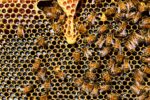Over this and next week we will be highlighting exciting news from the annual Peer Review Week, which took place 19–23 September. This week, we look at what happened in the early part of Peer Review Week. First, we read about the interplay between scientific trust and the peer review process. Next, we highlight a thought-provoking interview with peer review and open science expert Eiko Fried. Finally, we hear about how peer review can help improve research integrity and the tools for rooting out publishing malpractice. Outside of Peer Review Week, we read about the development of Open Science Indicators at PLOS, the revised principles of transparency and best practice in scholarly publishing, and the prohibitive cost of APCs. Finally, we call attention to the opening of registrations for EMWA’s autumn conference in Riga, Latvia, taking place 3–5 November.
To read:
Peer Review Week: trusting the peer review process via The Scholarly Kitchen | 12-minute read
The level of public trust in scientists has declined over recent years, especially since the pandemic and increasingly along political fault lines. Interestingly, there are also trust issues among researchers themselves, with 37% of 3000 surveyed researchers saying that they “only viewed half (of research outputs) or some of them as reliable”. However, the same survey also showed that knowing research is peer reviewed appears to alleviate these trust issues to a certain extent. So, what role does peer review have in bolstering trust in research? This article attempts to answer this question as well as considering what the interplay between peer review and trust looks like across different research communities, such as the humanities.
Peer Review Week: an interview with Eiko Fried via University of California Press | 5-minute read
To celebrate Peer Review Week, the University of California Press sat down with Eiko Fried (Associate Professor of Clinical Psychology at Leiden University and Associate Editor of the open access journal Collabra: Psychology) to discuss all things peer review!
Peer Review Week: the positive prospects of research integrity and peer review via The Scholarly Kitchen | 10-minute read
Peer review is essential for maintaining high standards in scholarly publishing, but what can we expect from the process when it comes to research integrity? In this article, Chris Graf (Research Integrity Director for Springer Nature) discusses the expectations of peer review relating to reproducibility, paper mills, misconduct and fraud. Chris also highlights 5 “reasons to be cheerful” about the future of peer review and research integrity, including better screening processes to catch integrity issues such as plagiarism and image manipulation.
Peer Review Week: the release of a new research integrity toolkit via Scholastica | 3-minute read
Over the course of Peer Review Week, Research Square and Scholastica have provided a blog series on tools to promote research integrity for authors, editors and publishers. This series focuses on disclosure statements, reproducibility and plagiarism, and ended with a ‘Research Integrity Toolkit’ infographic to condense the key take-home messages of the series. The first blog post in this series can be found here.
Developing Open Science Indicators at PLOS via PLOS | 8-minute read
To improve open science best practice and increase transparency, PLOS journals will begin to publish data on ‘Open Science Indicators’ (OSIs). Initially, three OSIs will be included for all PLOS articles published from 2019 to present, namely the sharing of research data in repositories, the public sharing of code, and preprint posting. Working alongside DataSeer, PLOS employed artificial intelligence approaches to conceptualize and develop these OSIs. In this article, Iain Hrynaszkiewicz (Director of Open Research Solutions at PLOS) discusses why OSIs are needed, PLOS’s current open science mission, and future plans for developing further OSIs.
The updated principles of transparency and best practice in scholarly publishing via OASPA | 4-minute read
The World Association of Medical Editors (WAME), the Committee on Publication Ethics (COPE), the Directory of Open Access Journals (DOAJ) and the Open Access Scholarly Publishing Association (OASPA) have updated the Principles of Transparency and Best Practice in Scholarly Publishing. Acting as a foundation for best practice in scholarly publishing, this revised 4th edition attempts to align the principles with the current publishing landscape, especially concerning topics such as website hosting, peer review, publication ethics, and author fees, as well as copyright, licensing and many others.
The prohibitive costs of open access publishing via The Conversation | 4-minute read
Open access journals often charge article processing charges (APCs) to publish in them. These costs are prohibitive to many authors from less well-funded institutes and create biased publishing landscapes in which only those with sufficient funds are able to publish open access research. However, many open access journals do not charge author fees, which is known as diamond open access. In this opinion piece, Jessica Lange of McGill University argues that the existence of open access journals without APCs proves that open access publishing need not be so expensive.
To engage with:
EMWA goes Baltic via EMWA
This year, the autumn conference of the European Medical Writers Association (EMWA) will head east to Latvia! Taking place 3–5 November in Riga, the EMWA autumn conference will provide a range of professional development and networking opportunities for medical writers at every stage of their careers. You can view the programme here and register for the conference here.
Have you seen our commentary about user perspectives on plain language summaries? Read it here in Current Medical Research and Opinion.






